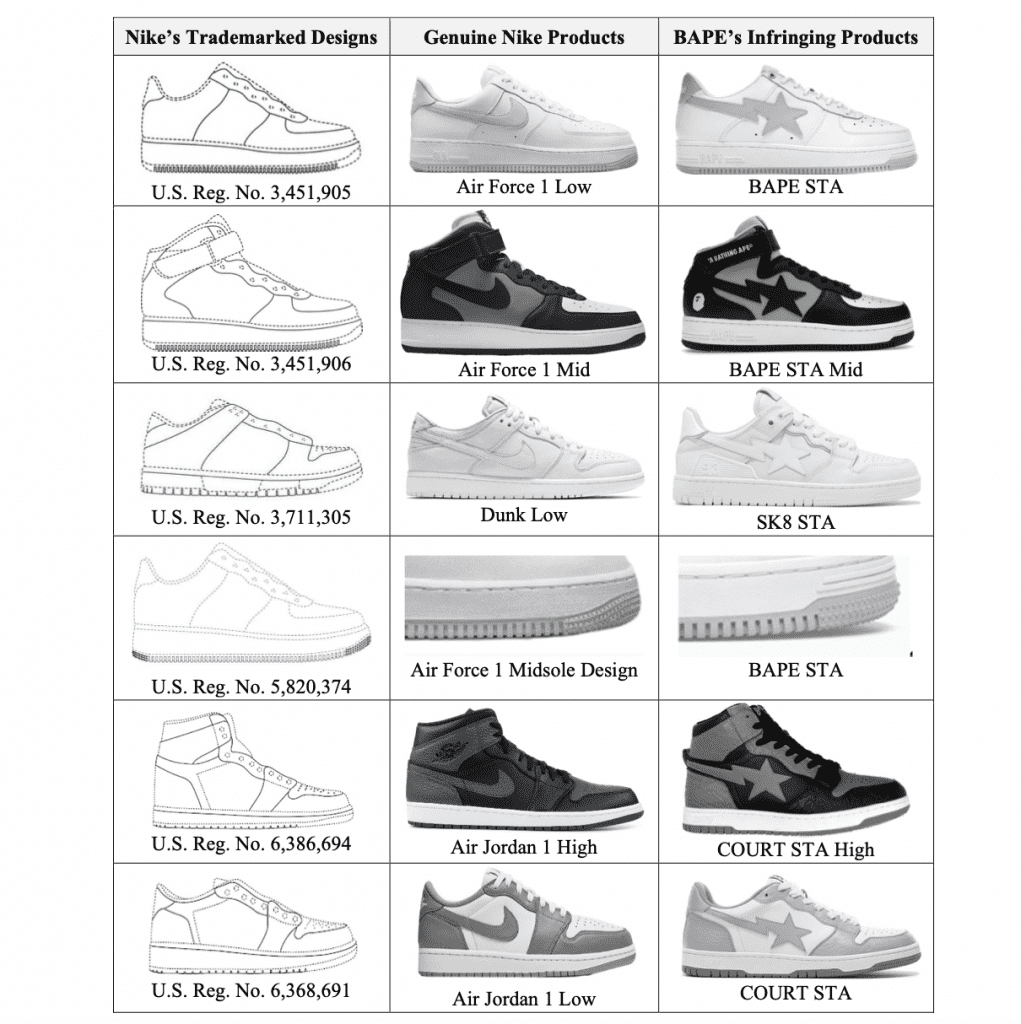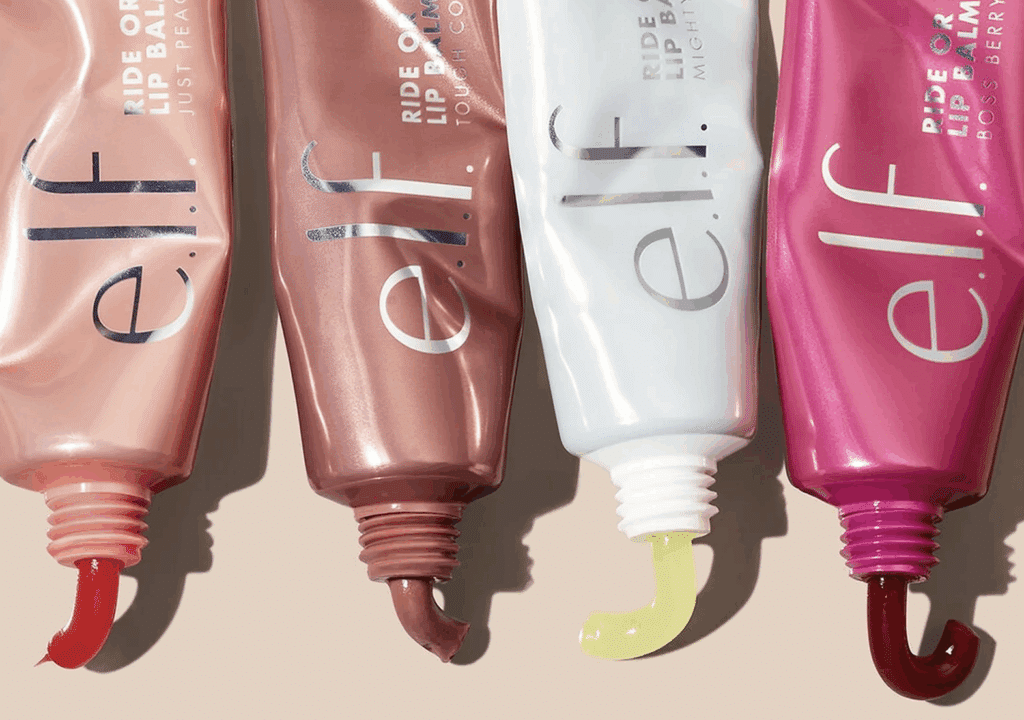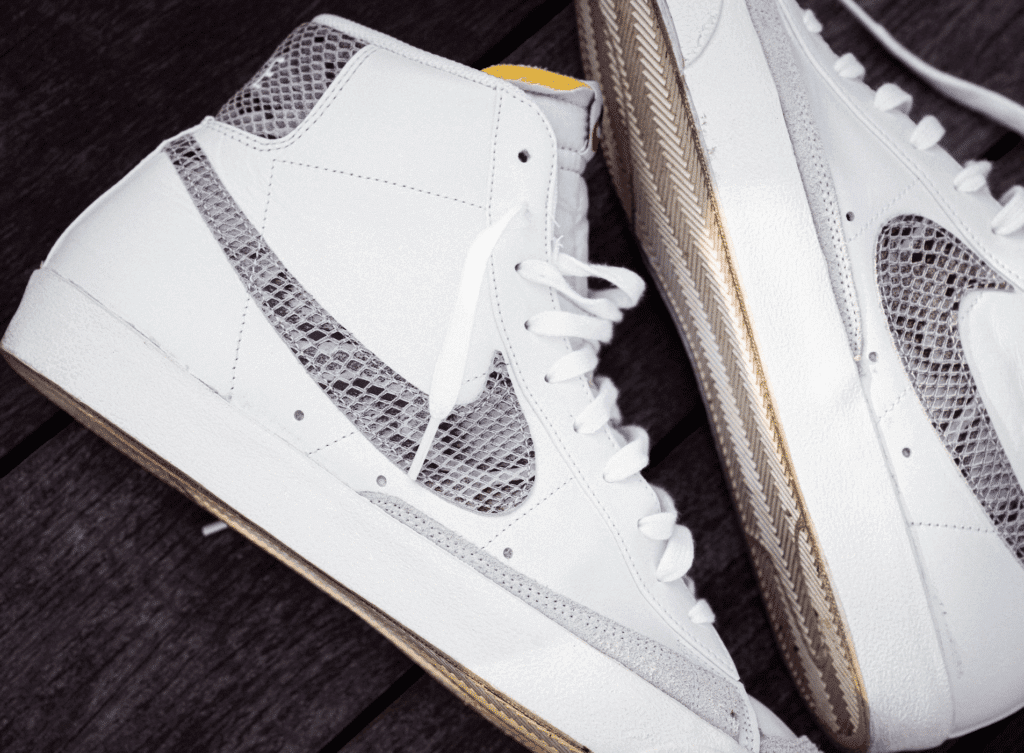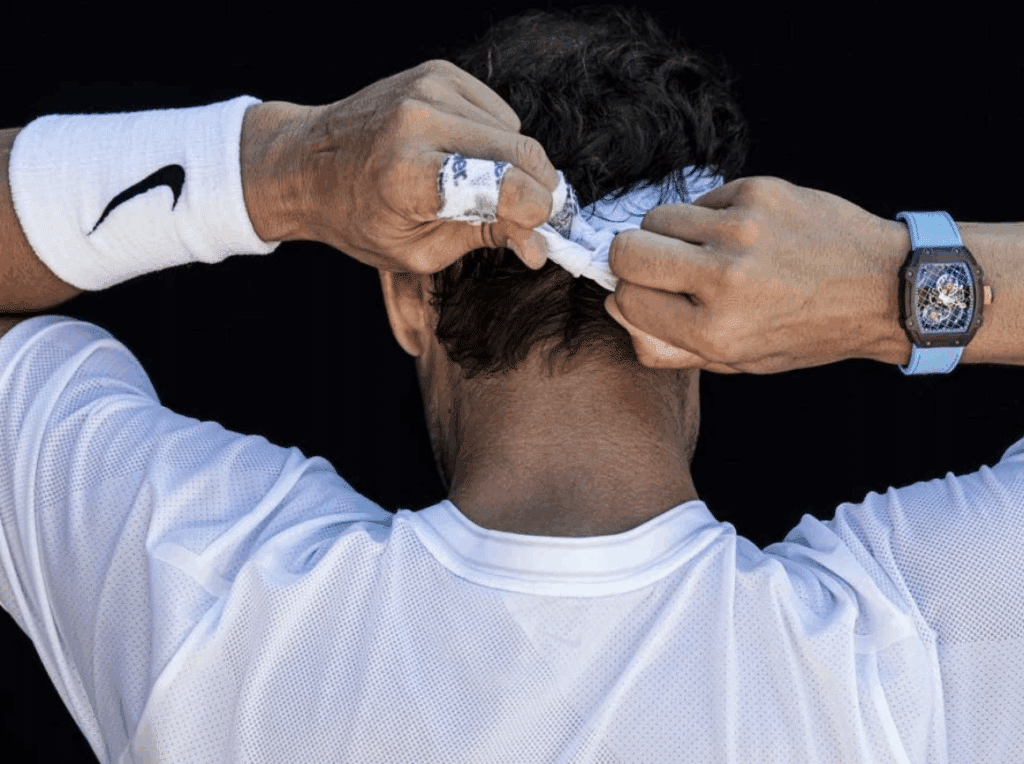Nike and BAPE have settled a trademark lawsuit over the latter’s “escalating infringement” of some of Nike’s most well-known sneaker designs. In a filing lodged with the U.S. District Court for the Southern District of New York on Monday, counsel for Nike and BAPE jointly stipulated to the dismissal of the case with prejudice, including all claims and defenses, and agreed to each pay their own costs and attorneys’ fees. The companies alerted the court that they have entered into a settlement agreement in resolution of the case, with a representative for Nike saying in a statement that in furtherance of the settlement, BAPE agreed to discontinue its sale of some of the allegedly infringing sneakers and to redesign others.
The settlement comes on the heels of BAPE unsuccessfully seeking an early escape from the trademark infringement and dilution claims that Nike first waged against it in January 2023. In a May 2023 motion to dismiss, BAPE argued that Nike failed to adequately identify the elements of the sneaker trade dress at the heart of its case. However, SDNY Judge Paul Gardephe refused to grant the Nigo-founded brand’s motion last month, holding that the certificates of registration that Nike incorporated in the complaint, “adequately articulate the scope of Nike’s asserted trade dress,” as the registrations “contain detailed written descriptions, as well as diagrams that specifically denote which parts of the trade dress are being claimed as distinctive.”

Against that background, Judge Gardephe said that he was “not prepared to rule that Nike’s written descriptions and trade dress diagrams are insufficient articulations of ‘the specific elements of the trade dress that should be protected.’”
In the wake of the court denying its motion to dismiss, BAPE asserted a counterclaim aimed at getting the court to cancel a number of Nike’s registrations for its Air Force 1, Jordan 1, and Dunk trade dress. According to BAPE, by “granting third parties ‘naked licenses’ (i.e. permission to use [its] purported trade dress without maintaining any control over the quality of the sneakers bearing that trade dress), Nike has abandoned any rights it may have developed in that trade dress.”
Delving into the naked licenses allegedly offered up by Nike, BAPE claimed that the Swoosh granted “at least one sneaker company” – Already LLC – and any licensee of Already’s “immunity” from future trademark actions in connection with the lawsuit that Nike filed against Already back in 2009. In that case, Nike alleged that two of Already’s sneaker styles violated its Air Force 1 trademark. Already responded to Nike’s trademark claims by challenging the validity of its Air Force 1 trade dress registration, which ultimately prompted Nike to issue a covenant not to sue in order to “save its feeble registration from cancellation,” per BAPE.
In doing so, BAPE argued that Nike “severed the connection in the minds of consumers between [the] purported Air Force 1 trade dress and Nike as a source” of that trade dress since “consumers would be confronted with sneakers bearing Nike’s purported trade dress, without the Nike word marks or Logo, [and] instead bearing the word marks and logos of others.” And that is just one example, per BAPE, which alleged that Nike has “permitted widespread third-party use of its purported Air Force 1, Air Jordan 1, and Dunk trade dress, beyond the use of the Air Force 1 trade dress by Already,” thereby, warranting the invalidation of a handful of Nike’s trademark registrations.
Nike’s case against Already – and the covenant not to sue and corresponding naked licensing – is relevant here, according to BAPE, as while Nike still maintains three registrations for its Air Force 1 trade dress (Reg. Nos. 3,451,905, 3,451,906, and 5,820,374), the covenant not to sue serves to invalidate Nike’s rights in that trade dress “by granting third-parties permission to use its purported trade dress on sneakers without retaining any control over the quality of those sneakers.” With that in mind, BAPE requested that the court dismiss Nike’s claims against it with prejudice and sought an order from the court that the U.S. Patent and Trademark Office cancel each of the relevant Air Force 1, Air Jordan 1, and Dunk trade dress registrations.
While it appeared that the court might shed some light on the whether a company’s issuance of broad covenants not to sue could ultimately – and negatively – impact its ability to enforce its rights in the relevant mark(s) at a later date, the settlement brings the matter to a close.
The case is Nike, Inc. v. USAPE LLC, 1:23-cv-00660 (SDNY).














